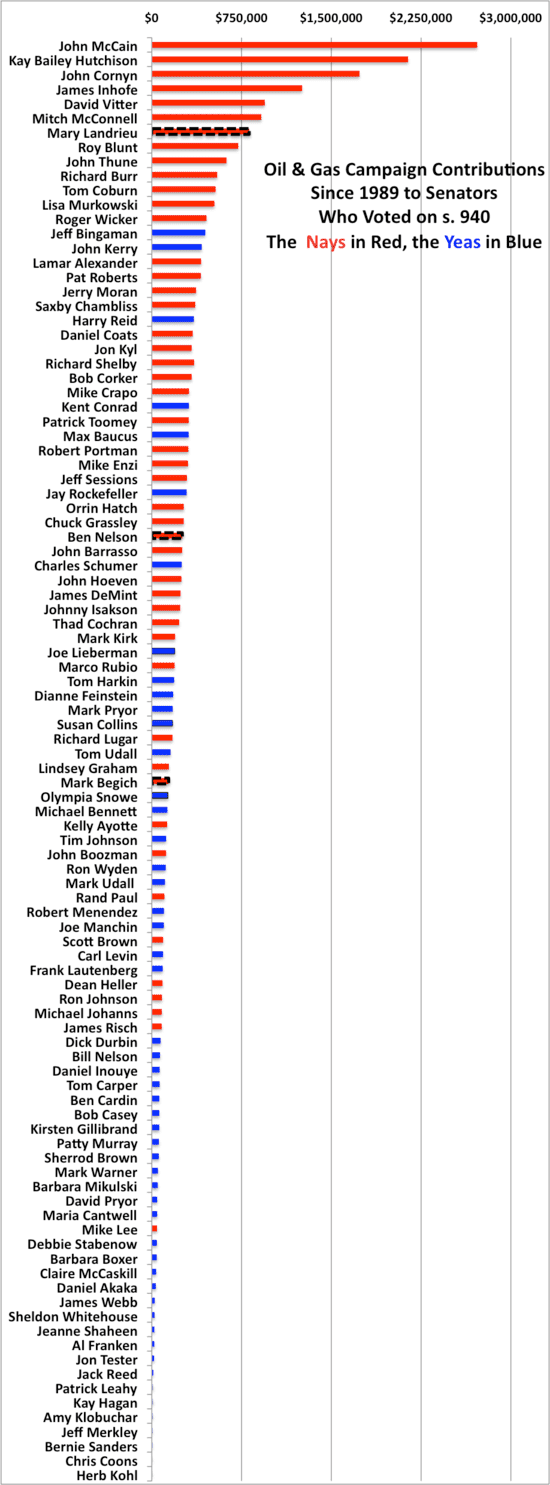JBeukema
Rookie
- Banned
- #1
House Members Side with Big Oil After Taking $8.7 Million in Campaign Cash | Public Campaign Action Fund-U.S. House members who defeated a measure to begin debate on legislation to end certain subsidies for oil companies received five times more in campaign contributions, on average, from the oil and gas industry in the 2010 election cycle than those who voted to proceed with the motion, according to campaign watchdog Public Campaign Action Fund.


